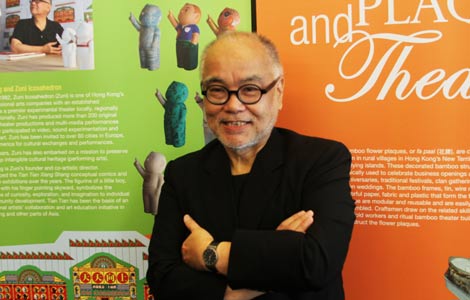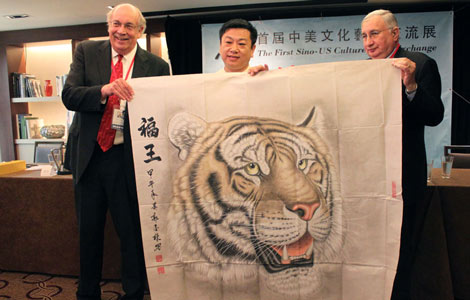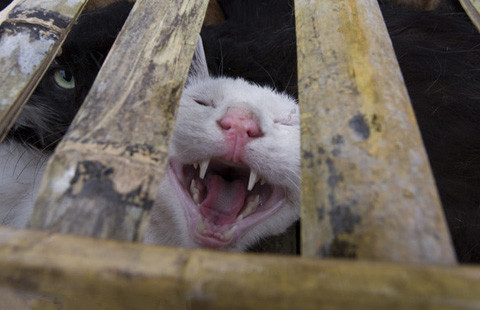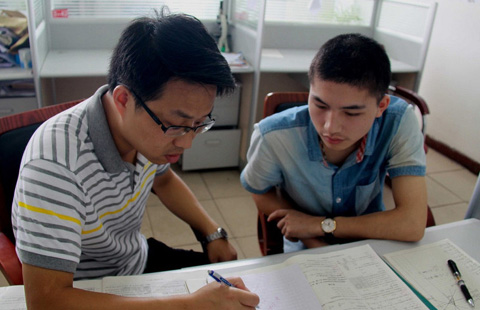Chinese national arrested for alleged trade secret theft
Updated: 2014-07-04 12:12
By Amy He in New York (China Daily USA)
|
||||||||
Alleged conspirator to steal seed corn is said to be one of seven
Another Chinese national has been arrested in connection to an alleged conspiracy to steal trade secrets for corn seeds from US agricultural companies, according to government officials.
Mo Yun was arrested in Los Angeles on Tuesday and indicted Wednesday in Des Moines, Iowa, on a charge of conspiracy to steal trade secrets. The federal indictment says she is one of seven Chinese nationals indicted as part of an operation to steal patented seed corn from fields in Iowa and Illinois and ship it to China to try to reproduce its traits.
Federal prosecutors in Des Moines said the team worked for Chinese conglomerate Dabeinong Technology Group Company (DBN), DBN Group. Mo Yun is the wife of DBN's billionaire chairman, Shao Genhou.
Mo was charged with trying to steal the seeds from DuPont Co, Monsanto Co, and LG Seeds to take them back to China for DBN, which has a corn-seed subsidiary company, Kings Nower Seed.
Mo was part of DBN's research project management team. She is the sister of Mo Hailong, who was arrested last year in connection to the same charge from US prosecutors accusing him of directing the conspiracy.
The government said that between January 2007 and December 2012, Mo Hailong, Mo Yun and other individuals worked together "to steal the trade secrets of several US-based seed-manufacturing companies" and transported those secrets back to China for Kings Nower Seed.
"The FBI's investigation into Mo Yun should not go unnoticed by those who seek to steal trade secrets and private business information," said Thomas R. Metz, special agent in Charge of the Omaha Division of the FBI, said in a statement. "Identifying and deterring those focused on stealing trade secrets, propriety and confidential information or national security information is the No 2 priority for the FBI, second only to terrorism."
DuPont filed a complaint two years ago against Mo Hailong when a company employee saw Mo digging up and stealing seeds from an unmarked test field in the Midwest, and then fleeing when confronted, the Delaware-based company said.
The seeds Mo allegedly tried to steal are a type of inbred corn seed that companies use to create pesticide-resistant hybrids that are high-yielding. US companies spend billions on agricultural research and development, and acquisition of these seeds could save companies like Kings Nower Seed millions in research costs, according to Christopher Burgess, CEO of Prevendra, a security intelligence company who previously served in the Central Intelligence Agency.
"In the corn department, stealing this seed would give a bump to any other entity of about $30 to $40 million in research savings. We're talking big money," Burgess told China Daily on Thursday.
Carl Pray, a professor of agriculture and food economics at Rutgers, said that acquiring the seeds would give DBN an edge in China's domestic market.
"DBN is doing some quite good biotech research and any company wants to have good background hybrids into which they can put the genes and traits that they're trying to develop," he said. "So what they're to do is get the best background hybrid material that's available so that they can use it in China and they'll have material that's competitive with anybody in China."
China has recently halted US exports of corn, citing concerns over genetically modified crops with the decision to reject shipments hurting US grain-trading companies. Rejected shipments have cost companies $427 million in lost sales, the Wall Street Journal reported.
Corn is an increasingly important grain for China as it becomes the primary form of feed given to livestock, which itself has been growing rapidly as China's meat consumption driven by China's growth in meat consumption. An April report from the US Department of Agriculture said that corn surpassed rice to become the largest single crop produced by the country in 2012.
In addition, land allotted to corn growth has increased sevenfold in the last seven decades, with China now planting roughly equal areas of cropland in corn.
"I think their goal is to simply try to catch up with the US technology as far as producing food, without having to pay for it. The US dominates - the Monsantos of the world, and the Pioneers of the world - they dominate that market," said John Payne, market strategist with Daniels Ag Services. "As the world grows and more emerging markets come up, there is going to be a food shortage, and China's just seeing that big picture development."
amyhe@chinadailyusa.com
(China Daily USA 07/04/2014 page2)

 'God father' of HK art honored for Smithsonian exhibit
'God father' of HK art honored for Smithsonian exhibit
 Grateful blessings
Grateful blessings
 Visitors tour Chinese warships
Visitors tour Chinese warships
 Chinese-American police officers rise in NYPD
Chinese-American police officers rise in NYPD
 The world in photos: June 30 - July 6
The world in photos: June 30 - July 6
 Chinese navy to join 2014 RIMPAC naval drill
Chinese navy to join 2014 RIMPAC naval drill
 Gettysburg reenactment marks 151st anniversary
Gettysburg reenactment marks 151st anniversary
 Washington splashed with fireworks
Washington splashed with fireworks
Most Viewed
Editor's Picks

|

|

|

|

|

|
Today's Top News
Chinese envoy: 'Time is ripe' for BRICS' bank
US south benefitting from China investment
Talks may help US soy exports
Product placement deal transforms into dispute
China approves Lenovo, IBM $2.3b server deal
Meet the new breed of migrant workers
NetJets awaits green light to start China operations
Unleashing the power of innovation
US Weekly

|

|






